It’s important as you embark on your higher education journey that you realise you are not alone.
Whether you are a veteran studying whilst still serving, or now concentrating on your studies full-time, these tips are universal in nature.
As you move through your university experience you will likely develop your own internal set of lessons learnt, and it’s important you share these with other veterans.
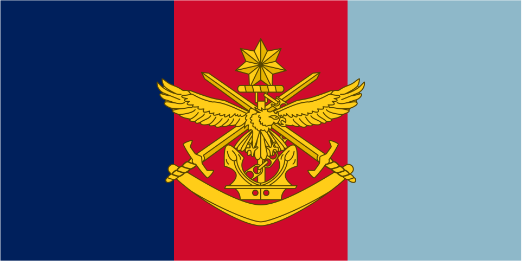
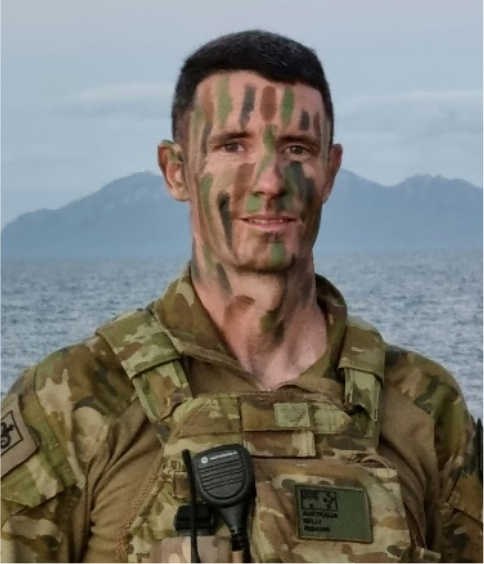

Tim enlisted into the Australian Regular Army as a Rifleman in the Corps of Infantry at the age of seventeen and completed over 23 years’ full-time service. Tim achieved the rank of Warrant Officer Class Two and will continue to provide service as a reservist.
Tim has seen active service in warlike and non-warlike operations in East Timor, Solomon Islands, Tonga and Iraq and served in various units such as First and Second Battalion, the Royal Australian Regiment, First Recruit Training Battalion as a Recruit Instructor, Australian Defence Force Academy as a Divisional Senior Non-Commission Officer, Reserve training depot (Coffs Harbour) as a Training Warrant Officer, Combat Training Centre as a performance coach and a Support Battalion as a Standards Warrant Officer.


Tim studies a Bachelor’s degree in Training and Development online and is passionate to support veterans and their families in the pursuit of knowledge and higher education qualifications by working as a Student Veteran Services (SVS) Liaison at Australian Catholic University (ACU).
Since commencing study and work at ACU, Tim advocates life-long learning and seeks to continue study because of the positive impacts it has had on his life.


Throughout his studies, Tim has overcome self-doubt and fears associated with higher educational studies and found his service has contributed to his success as a student.
Many of these contributions come from skills and experience in time management, establishing and balancing priorities, being able to effectively communicate, using sources of information to establish an opinion or argument and creating and executing plans.


Have a clear understanding of you work/life priorities and how to balance them. When entering higher education studies, you will need to compromise on some activities to complete units of study. Therefore, make an assessment and avoid situations where there is an unhealthy balance between work, study, and life.
Most tertiary education organisations offer or provide courses and/or information to prepare students for higher education study. Topics like, essay structure/writing, sentence, and paragraph constructions, note taking, evaluating information and how to conduct library searches, are all instrumental to transitioning successfully into higher education.
By putting in the hard work and time to learn each unit of study you will begin to learn better because you enjoy it. By being more involved in readings, assignments, and forums, you will find achieving the learning outcomes far easier than if you were to approach study as a chore.

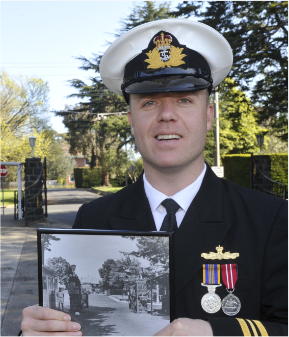

Lincoln joined the Royal Australian Navy in 1996 at the age of eighteen and completed 18 years’ of full-time service.
Lincoln achieved the rank of Lieutenant Commander and continues to support veterans as the current President of the Melbourne Student Veterans Society at ACU in Melbourne.
He graduated from the Australian Defence Force Academy in 1998 and completed Maritime Warfare training as an Officer of the Watch on a Guided Missile Destroyer (DDG) and a Minehunter Coastal (MHC). Lincoln then specialized as a Maritime Geospatial Officer, taking on roles within the Hydrographic, Meteorology, and Oceanography (METOC) Branch. His positions included Operational Meteorologist, Training & Development Manager, an exchange posting to the United Kingdom, and a representational posting to the United States Naval Postgraduate School.
Further roles included leading a range of large Navy Science Projects, Navy Career Manager and Senior Welfare Officer role for HMAS Cerberus before discharging in 2014.


Lincoln has just completed his first year of study at ACU in a Bachelor of Paramedicine. He is passionate about community service and works part-time as the Victorian Operations Lead for the Bureau of Meteorology in Hazard Response and Preparedness with the Victoria Emergency Services.


Lincoln is a mature age student and some 20 years older than most students in his cohort. At times he has felt vulnerable to starting again and trying to keep up with the next generation. He has also faced challenges juggling work, study, and a busy family life with three children. Through persistent hard work and determination, Lincoln achieved a GPA of 6.42 in his first year of study. He has gradually made an impact at ACU by reinvigorating the Melbourne Student Veteran Society and mentoring younger Paramedic students. Lincoln was proud to be nominated as a finalist in the ACU Student Veteran Impact Awards in 2023 and to be elected to the ACU Academic Board in 2024.


There are amazing support services at ACU to support student veterans such as the Student Veteran Services, the Veteran Transition Program, and the Student Veteran Society. There are many others in your position that are willing to support and help you.
After COVID-19, student cohorts are still struggling to reconnect and be social. Try to connect with others and form study groups and go out socially. It helps to share the experience with others going through something similar.
If you work hard and apply yourself, good things happen. Always ask questions of your lecturers after class, on discussion forums or privately by email. Feedback is a gift.

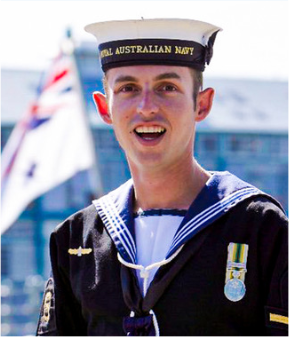

Chris served in the Royal Australian Navy as a Combat Systems Operator (Mine Warfare) for six years before discharging in 2008 as an Able Seaman. During this time, Chris served on HMAS Diamantina, a Mine Hunter based in Sydney, with peacekeeping deployments to the Solomon Islands and operations throughout Australia and Asia.
Chris also served in Canberra as part of the Australia Federation Guard. During this time, he was the Drum Corps Commander and was honoured to participate in the 2007 ANZAC Day services in Gallipoli, Turkey. After his service, Chris pursued a career in finance and held various roles in Sydney and China before undertaking full-time studies.


Chris is a full-time Australian Catholic University (ACU) student studying a combined degree of Bachelor of Psychological Science and Bachelor of Arts (Sociology). His biggest passion is mental health, support, awareness, and advocacy in the Defence and LGBTIQA+ communities. Higher education, lived experience, and military values enable Chris to continue building a solid foundation of advocacy and vocation in Mental Health.


When Chris started his studies, he wasn’t sure he had the skills and knowledge needed to keep up with the academic demands of university. Using the skills, drive, and dedication learned throughout his military and life experience, Chris maintains a good balance of strong academic grades, mental health advocacy, and a healthy and social lifestyle.


The transition from uniform to Higher education is easier when you have a team of like-minded individuals supporting each other. Motivate and support each other, and any obstacles that might come your way throughout your studies will be easier to overcome.
For some of us, it has been a while since we previously studied, so the thought of academic writing, referencing styles, spelling, grammar, examinations, etc, can be daunting. The best way to overcome obstacles or questions is to use one of the many University resources. This could be through online guides and classes, work/peer groups or one-on-one with a staff member. Never be afraid to ask for help.
Planning is key as it is easy to over-commit and underestimate the time it takes to complete academic studies. Start slowly, read the course and unit guides thoroughly, build a strong foundation, improve your study skills, and add additional units as you progress.

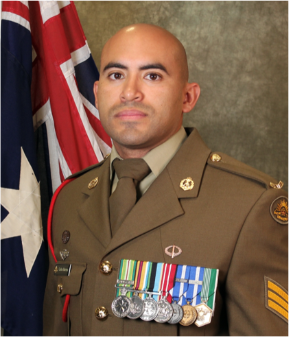

Carlos enlisted into the Australian Army in 2007 as a Rifleman in the Infantry Corps. Carlos commenced his study as a Corporal and graduated two months before being promoted to Warrant Officer Class Two.
Carlos has deployed to Afghanistan twice and is still currently serving.


Carlos studied a Bachelor of Business Management through Griffith University. He majored in Human Resource Management and Management.


Over the course of six years, multiple exercises with an amphibious unit, limited internet access, a deployment, three postings, a promotion, and the arrival of a third child brought significant changes. Initially, there was ample time for study; however, as time progressed, dedicating sufficient time became challenging. This necessitated developing more creative and efficient study methods. The most significant obstacle was deciding what subjects to study, due to apprehension and nerves. Ultimately, success required seizing opportunities and running with them.


Apply it to the concepts being learned. Utilise the resources and help available through the university. i.e. referencing tools, tutoring etc.
Utilise the theories you learn at work to help remember the content which will help you in assignments or exams.
Just as we do at work look for the specified, implied, and essential tasks within the subject to concentrate your efforts and to be efficient. You will not be able to do every reading and activity and time is a premium so learn how to sift through the content.

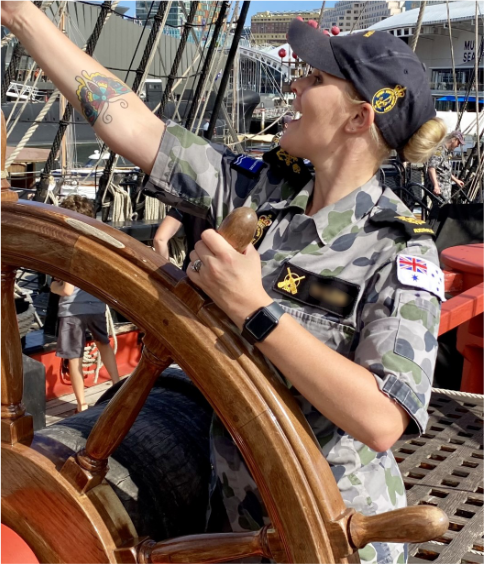

Margo joined the Navy at the age 19 from the NSW country town of Forbes. Margo, otherwise known as Blondie, achieved the rank of Petty Officer Bosun, where she completed service for 16 years within the Royal Australian Navy; she served her sea time on HMAS Manoora conducting rescue and peacetime missions and Armidale class patrol boats conducting sea rescue and border protection with op resolute.
For her final posting she commissioned one of the most prestigious training facilities designed for small boat capsize, survival at sea and helicopter wet winching recovery training. Blondie continues service as an active reservist where she is a Flotilla support Officer of Central Queensland part of the Australian Navy cadets for Youth development program.


I am studying for a Bachelor Paramedicine and I’m a second year student.


The struggles of transition are real. Blondie constantly questioned herself about whether she could provide, succeed, and adapt to a new lifestyle. She often wondered how her defence service would be perceived and how her qualifications from over fifteen years of service would translate as she entered her mid-30s and became a university student. Additionally, she had to consider her husband, who is an ex-Navy member medically retired from defence, and who underwent a full knee replacement during the first semester. Despite these challenges, she continued to study four units, juggle motherhood of two young boys—one just starting school and the other in kindergarten—while also trying to work and earn money.
Realising that leaving the safety blanket of defence was a significant mental and financial hurdle, Blondie found it achievable with the unlimited support provided by the Australian Catholic University (ACU) and as a recipient of QLD RSL scholarships, which any defence member or spouse can apply for. The end goal for the year was a clinical placement with the Queensland Ambulance Service (QAS), which solidified her decision that this was undoubtedly her next career path and that pursuing a university degree at ACU was not a waste of time.
Blondie is now a part of the Student Veterans Association and is committed to supporting other veterans transitioning from defence to university life, even if it’s just for a chat and a brew.


Never forget you’re not alone when it comes to the struggles and transition of the defence force to civilian / study life; never be shy about reaching out, as there are always others in the same boat.
Using these skills and experience and adapt them to you and how you learn because not everyone learns the same way.
It's ok to fail because failing teaches us a different way to apply ourselves to not fail again, and if you don’t get it the first time, it's okay to find the way that is most effective for you to time manage and be organised for success. Everyone runs their own race at a different pace.
